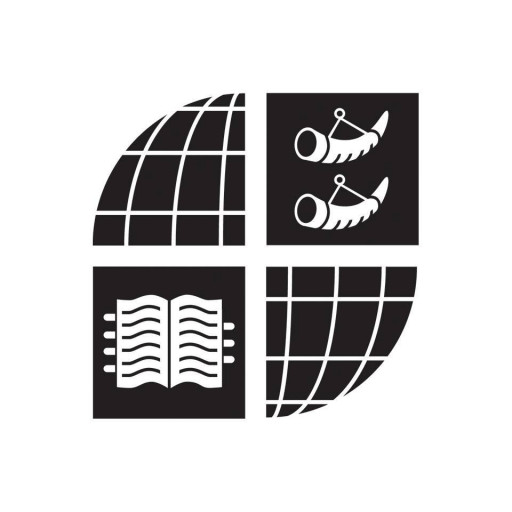Photos of university / #livuni
Our Ancient History programme provides you with the chance to study a wide range of themes in the political, social, and cultural history of ancient Greece and Rome. You are introduced to important figures such as Alexander the Great, Julius Caesar, or Augustus, and their military and political actions. You also learn about the social, economic, and cultural realities of life in Athens and Rome and you are challenged in your assumptions about the Classical World.
The degree provides you with the skills to read and analyse the surviving (and sometimes conflicting) evidence, allowing you to reach and present your own judgments convincingly on a variety of complex and controversial social,
political, and cultural issues. You will also have the opportunity to study Greek and/or Latin from beginners to advanced levels.
Why this subject?
- Bring theory to life. At Liverpool our teaching is not just paper-based; we have campus facilities that allow you to experience hands-on activities to complement your studies. You’ll be taught in our newly refurbished Garstang Museum of Archaeology, which holds over 40,000 artefacts, including collections from Egypt, the Aegean, Sudan, Jericho, Anatolia and Great Britain. You’ll also be able to use archaeological facilities in our Archaeological Research Laboratories as well as our award-winning Central Teaching Laboratories, which houses equipment and material for scientific analysis and has provision for flint-knapping and cave-painting, all of which are part of our core teaching activities.
- Benefit from the unique breadth of our programmes. You’ll work alongside staff who are experts in their chosen field and have developed degree programmes that fully immerse you in the subject by studying the world from human origins right through to the civilisations of Greece, Rome, the Near East and Egypt. You can either choose to focus on a particular culture or period or gain a broader training that combines ancient civilisations. Alongside this, you will also have the opportunity to explore a number of ancient languages: Egyptian Hieroglyphs, Greek, Latin, Coptic, Sumerian and Akkadian.
- Surround yourself with academic excellence. You’ll be studying in one of the largest departments of its kind in the world, with a community of 40 full-time academic staff all engaged in internationally recognised research. In the Research Excellence Framework (REF) 2014 Archaeology staff were ranked 5th in the UK for world-leading research. Our staff specialisms include Greek and Roman Literature, Ancient History, Mediterranean Archaeology, British Prehistoric and Historic Archaeology, Human Evolution (Evolutionary Anthropology), African Archaeology, Near Eastern Archaeology and Egyptology (the largest grouping of Egyptologists in the UK).
- Fulfil your potential in a supportive environment. With our extensive staff expertise,we can support you in every aspect of your learning. As you move through your programme of study, we will work with you to encourage you to play to your strengths and to specialise in aspects and approaches that interest you, whether historical, archaeological, literary or linguistic.
Programme Year One
120 credits spread evenly across two semesters
Required modules include (15 credits each):
- ‘Warfare, Politics, and Society in the Greek World, 510-323 BC’
- ‘Hannibal to Nero: An Introduction to Roman History’
- ‘Greek Myth and Society’
- ‘Using Visual Culture’
Optional modules can include (15 credits each):
- ‘Worlds of Odysseus’
- ‘Virgil and the Age of Augustus’
- Latin
- Greek
Compulsory modules
- Warfare, Politics, and Society In The Greek World, 510-323 B.c. (CLAH104)
- Hannibal To Nero: An Introduction To Roman History (CLAH105)
- Using Visual Culture (CLAH114)
- Greek Myth and Society (CLAH115)
Optional modules
- The Worlds of Odysseus (CLAH101)
- Virgil and The Age of Augustus (CLAH102)
- Greek Myth and Society (CLAH115)
- Using Visual Culture (CLAH114)
- Latin Ia (CLAH401)
- Latin Ib (CLAH402)
- Ancient Greek Ia (CLAH501)
- Ancient Greek Ib (CLAH502)
Programme Year Two
120 credits spread evenly across two semesters
Required modules include (15 credits each):
- ‘Politics of the Past’
- ‘Class’
- ‘World of Herodotus
- ‘Ruling the Roman Empire’
Optional modules can include (15 credits each):
- ‘Rebuilding Troy’
- ‘Rome in the Late Republic’
- ‘Representing Women’
- ‘Ovid’s Metamorphosis’
- ‘Politics and Culture in 5th century Athens’
- ‘Nature and Virtue
- Latin
- Greek
Compulsory modules
- Politics of The Past In The Ancient World (CLAH200)
- Class and The Ancient World (CLAH202)
- Herodotus, Persia and The Greeks (CLAH207)
Optional modules
- Rebuilding Troy (CLAH211)
- Ovid's Metamorphoses (CLAH212)
- Politics & Culture In 5th Century Bc Athens (CLAH220)
- Women In Antiquity (CLAH251)
- Rome In The Late Republic (CLAH268)
- Nature and Virtue: Ancient Ethics (CLAH299)
- Latin Iia (CLAH403)
- Latin Iib (CLAH404)
- Latin Iva (CLAH423)
- Latin Ivb (CLAH424)
- Ancient Greek Iia (CLAH503)
- Ancient Greek Iib (CLAH504)
- Ancient Greek Iva (CLAH523)
- Ancient Greek Ivb (CLAH524)
- Ancient Greek Language Iib (CLAH654)
Programme Year Three
120 credits spread evenly across two semesters
- Dissertation (30 credits; required)
Optional modules can include (15 credits each):
- ‘Augustus and the Foundation of Empire’,
- ‘Rome’s West’,
- ‘Belief and Unbelief in Greek Religion’.
- ‘Augustus and the Foundation of Empire’
- ‘Seven against Thebes’
- ‘Rules for the Muses’
- ‘Luxuries and Consumption’
Compulsory modules
-
Dissertation (CLAH450)
Optional modules
- Augustus and The Foundation of Empire (CLAH301)
- The Seven Against Thebes: Statius, Thebaid (CLAH305)
- Rules for The Muse: Ancient Literary Criticism (CLAH314)
- Rome's West: Life In Provincial and Italian Communities, 27bc-ad 250 (CLAH357)
Requirements
- Students who have followed the national curriculum (Attestat o Srednem Obshchem Obrazovanii) must complete the University of Liverpool International Foundation Year or an equivalent foundation programme.
- Students offering A-levels, the International Baccalaureate Diploma with a minimum of 28 points or SATs can apply for direct entry to year one of undergraduate programmes.
- International Baccalaureate: 33 points
- IELTS 6.0 with minimum 5.5 in each component.
- Please note that TOEFL is no longer classified by UK Visas and Immigration (UKVI) as a secure English Language Test (SELT). However the University is continuing to accept TOEFL at the required level for entry onto undergraduate and postgraduate academic programmes.
Want to improve your English level for admission?
Prepare for the program requirements with English Online by the British Council.
- ✔️ Flexible study schedule
- ✔️ Experienced teachers
- ✔️ Certificate upon completion
📘 Recommended for students with an IELTS level of 6.0 or below.
Scholarships
- Liverpool International College (LIC) Merit Award
- International Baccalaureate (IB) Award
- Vice Chancellor's International Attainment Scholarship



